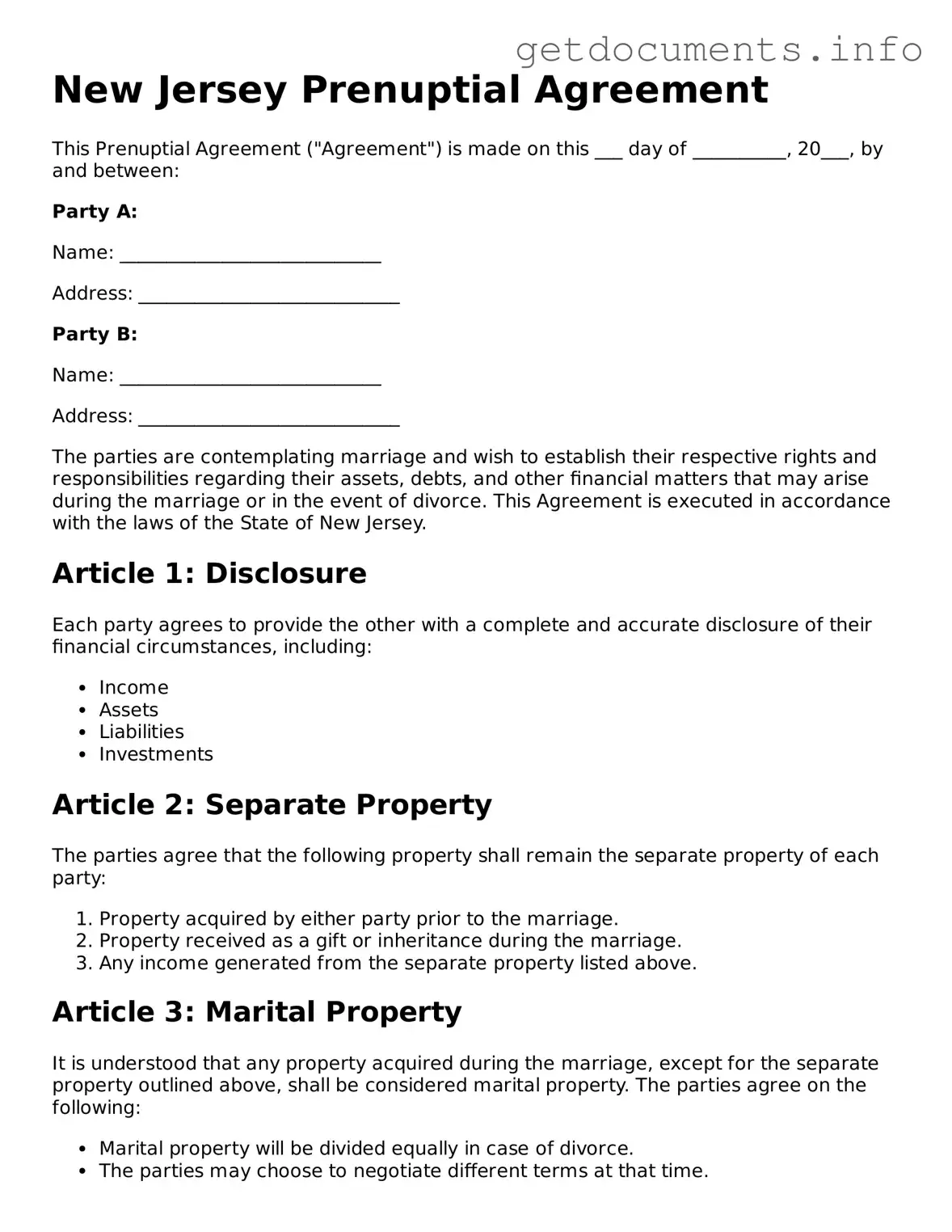Free Prenuptial Agreement Template for New Jersey
A Prenuptial Agreement form in New Jersey is a legal document that outlines the financial and personal rights of each partner before entering into marriage. This agreement can help clarify expectations and protect individual assets, ensuring both parties understand their responsibilities. To get started on your own prenuptial agreement, fill out the form by clicking the button below.
Access Prenuptial Agreement Editor

Free Prenuptial Agreement Template for New Jersey
Access Prenuptial Agreement Editor
Got places to be? Complete the form fast
Fill out Prenuptial Agreement online and avoid printing or scanning.
Access Prenuptial Agreement Editor
or
⇩ PDF File
